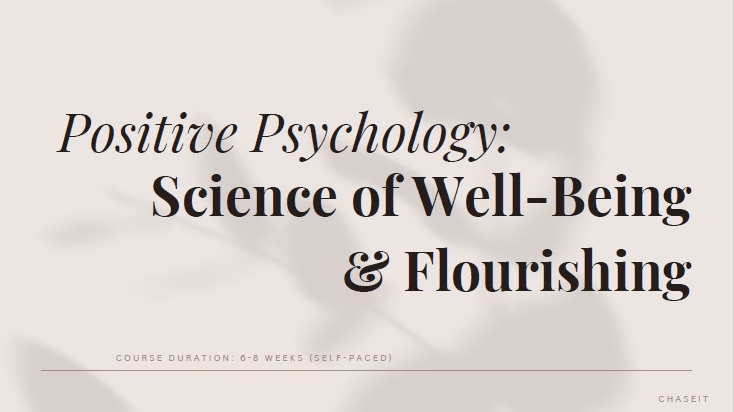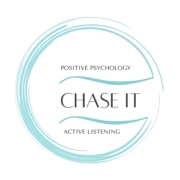Positive psychology: Science of Well-Being & Flourishing

About Course
Learning Outcomes and Impact
By the end of the course, learners should be able to:
1. Identify and apply strengths to improve their personal and professional
lives.
2. Set meaningful goals and increase motivation using various goal-setting
techniques.
3. Cultivate resilience and adopt a growth mindset in the face of challenges.
4. Build emotional intelligence and practice mindfulness to enhance stress
management.
5. Incorporate acts of kindness and positive psychology interventions into
their routine.
6. Design a well-being plan that aligns with their personal and professional
aspirations.
Course Content
Module 1: Introduction to Positive Psychology
-
Lecture Overview
-
1. What is Positive Psychology?
-
1.1. The Origins of Positive Psychology
-
2. Traditional vs. Positive Psychology
-
2.1. Core Concepts and Theories of Positive Psychology
-
3. Summary and Key Takeaways on Modul 1
-
4. Activity: Well-Being Self-Assessment (based on the PERMA model)
-
5. Homework & Reflection on Modul 1
Module 2: The Science of Happiness & Well-Being
Module 3: Strength-Based Approach
Module 4: Growth Mindset & Resilience
Module 5: Emotional Intelligence & Mindfulness
Module 6: Positive Psychology Interventions
Module 7: Goal-Setting & Motivation
Module 8: Building Meaningful Relationships
Module 9: Applying Positive Psychology in Life & Work
Student Ratings & Reviews

No Review Yet
